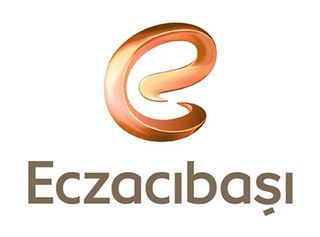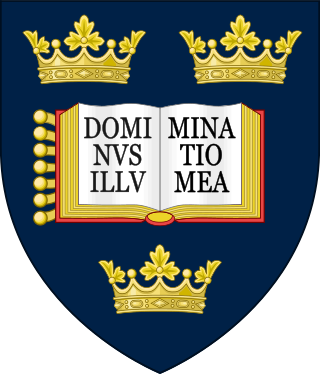A pension fund, also known as a superannuation fund in some countries, is any program, fund, or scheme which provides retirement income.

The U.S. Economic Development Administration (EDA) is an agency in the United States Department of Commerce that provides grants and technical assistance to economically distressed communities in order to generate new employment, help retain existing jobs and stimulate industrial and commercial growth through a variety of investment programs. EDA works with boards and communities across the country on economic development strategies.
Technology transfer (TT), also called transfer of technology (TOT), is the process of transferring (disseminating) technology from the person or organization that owns or holds it to another person or organization, in an attempt to transform inventions and scientific outcomes into new products and services that benefit society. Technology transfer is closely related to knowledge transfer.
Francis Eric Knight Britton was an American political scientist and sustainability activist who has lived and worked in Paris, France, since 1969. As the main convenor of The Commons: Open Society Sustainability Initiative and its various networks, he is well known for promoting integrated public transport, carsharing and bike sharing.

Aselsan A.Ş. is a Turkish defense corporation headquartered in Ankara, Turkey. Its main operating area is research, development and manufacture of advanced military products for air, land and maritime forces. The company is one of the major contractors of the Turkish Armed Forces. Aselsan was ranked by Defense News as the 48th largest defense company in terms of revenue. The Turkish Army Foundation is the founder, and it's successor, the Turkish Armed Forces Foundation, is the major stockholder.

Eczacıbaşı Holding is a Turkish industrial group of companies founded in 1942. As of 2023, the Group's 50 companies employ more than 13,500 people, operated 40 production plant, and generate a combined net turnover of TL 33 billion.
The National Oceanographic Partnership Program (NOPP) facilitates interagency and multi-sectoral partnerships to address federal ocean science and technology research priorities. Through this collaboration, federal agencies can leverage resources to invest in priorities that fall between agency missions or are too large for any single agency to support. In its first 20 years, NOPP invested more than $468 million to support over 200 research and education projects with over 600 partners. A comparable amount of in-kind support has been committed by the research and education community.
Corporate venture capital (CVC) is the investment of corporate funds directly in external startup companies. CVC is defined by the Business Dictionary as the "practice where a large firm takes an equity stake in a small but innovative or specialist firm, to which it may also provide management and marketing expertise; the objective is to gain a specific competitive advantage." Examples of CVCs include GV and Intel Capital.

Oxford University Innovation Limited (OUI) is a British technology transfer and consultancy company created to manage the research and development (R&D) of university spin-offs. OUI is a wholly owned subsidiary of the University of Oxford, and is located on Botley Road, Oxford, England. OUI was previously known as Isis Innovation (1988–2016) and Oxford University Research and Development Ltd (1987–1988).
The Office of Social Innovation and Civic Participation was an office new to the Obama Administration, created within the White House, to catalyze new and innovative ways of encouraging government to do business differently. Its first director was the economist Sonal Shah. The final director was David Wilkinson.

Howard Warren Buffett is an American philanthropist, political consultant, political scientist, and writer. A grandson of the American businessman and investor Warren Buffett, he is an adjunct professor in public policy and international affairs at Columbia University's School of International and Public Affairs and was previously the executive director of the Howard G. Buffett Foundation, a private philanthropic foundation that funds initiatives aimed at improving the standard of living and quality of life for the world’s most impoverished and marginalized populations. He previously led agriculture-based economic stabilization and redevelopment programs in Iraq and Afghanistan while at the United States Department of Defense, and as a policy advisor in the Executive Office of the President of the United States under President Barack Obama.
The Irrigated Rice Research Consortium (IRRC) focuses on agricultural research and extension in irrigated rice-based ecosystems. In partnership with national agricultural research and extension systems (NARES) and the private sector, the IRRC provides a platform for the dissemination and adoption of natural resource management (NRM) technologies in Asian countries. The IRRC is currently active in 11 countries: Bangladesh, Cambodia, China, India, Indonesia, Laos, Myanmar, the Philippines, Sri Lanka, Thailand, and Vietnam. It aims to strengthen NARES-driven interdisciplinary research, link research and extension, facilitate rice farmers' uptake of technological innovations, and enable environmentally sound rice production to expand to feed growing populations.

The Cooperative State Research, Education, and Extension Service (CSREES) was an extension agency within the U.S. Department of Agriculture (USDA), part of the executive branch of the federal government. The 1994 Department Reorganization Act, passed by Congress, created CSREES by combining the former Cooperative State Research Service and the Extension Service into a single agency.
The Global Health Innovative Technology Fund, headquartered in Japan, is an international public-private partnership between the Government of Japan, 16 pharmaceutical and diagnostics companies, the Bill & Melinda Gates Foundation, the Wellcome Trust and United Nations Development Programme. It funds scientific research and development for anti-infectives and diagnostics for diseases that primarily affect the developing world. Bill Gates has noted that "GHIT draws on the immense innovation capacity of Japan’s pharmaceutical companies, universities and research institutions to accelerate the creation of new vaccines, drugs and diagnostic tools for global health." Margaret Chan, former Director-General of the World Health Organization, said: "The GHIT Fund has stepped in to provide that incentive in a pioneering model of partnership that brings Japanese innovation, investment and leadership to the global fight against infectious disease."

The Nigerian Capital Development Fund (NCDF) is an organization dedicated to impact investing and promoting economic development in Nigeria. Established with the aim of fostering a resilient entrepreneurial ecosystem, NCDF provides essential support, capital, and resources to entrepreneurs, start-ups, and early-stage businesses. The organization's efforts are focused on facilitating job creation, product development, market expansion, and overall economic growth within the country.

Venture capital in Poland is a segment of the private equity market that finances early-stage high-risk companies based in Poland, with the potential for fast growth. As of March 2019, there is a total of 130 active VC firms in Poland, including local offices of international VC firms, and VC firms with mainly Polish management teams. Between 2009–2019, these entities have invested locally in over 750 companies, which gives an average of around 9 companies per portfolio. The Polish venture market accounts for 3% of the entire European ecosystem of VC investments, mainly in the digital space.

The space program of Turkey is the space policy implemented by Turkey to further its interests in aerospace. Turkey first began developing its space program in 1993, and it has been under the authority of the Turkish Space Agency since 2018. Turkey has launched several satellites, and its current objective is to send a lander to the Moon by 2026.

CIIE.CO is an Indian startup accelerator and incubator that supports early-stage startups located at IIM Ahmedabad in Ahmedabad, India. It was founded in 2002 to promote innovation and entrepreneurship in India. It is a Center of excellence set up at Indian Institute of Management Ahmedabad with support from the Government of India's Department of Science and Technology and the Government of Gujarat.

Logo Software is a Turkish business software company based in Gebze, Kocaeli. The company was founded in 1984, and was officially established in 1986. Logo Yazılım has more than 1,500 employees and over 1,000 business partners in 7 different locations in 4 different countries. It started developing Logo Paas in 2015 as part of its servitization strategy and offers cloud applications through this platform. Logo Yazılım also provides digital transformation consultancy and special project management services.

Mehmet Fatih Kacır (born 16 October 1984, Istanbul) is a Turkish politician and entrepreneur.












